The Wars of the Poppies
Leslie Marchant
History Today, Volume 52, Issue 5, 2002
Leslie Marchant sees the Opium Wars as a philosophical clash between two cultures and two notions of government and society.
Leslie Marchant sees the Opium Wars as a philosophical clash between two cultures and two notions of government and society.
C O N T E N T S Summaries Only
▲1 The Anglo-Chinese Opium Wars of 1839–42 and 1856–60, and the later Cold War that resulted in the 1876 Chefoo Convention, were doctrinal in origin. They involved, on the one side, a European power driven by a doctrine of action – the belief that free trade and the internationalization of commerce would create wealth for all nations, and the utopian idea that this would produce a new peaceful world order – and, on the other, protectionist China under a literati which, in the light of the Confucian Renaissance under the Manchus, discounted doctrinarism in the belief that this had caused the Ming dynasty to fall, valued reason and rejected the idea that trade could elevate human society.▲2 Merchants in Confucian China were viewed as limited people, ranked with the lower levels of society, self-seekers who put material gain above scholarship and the spiritual.
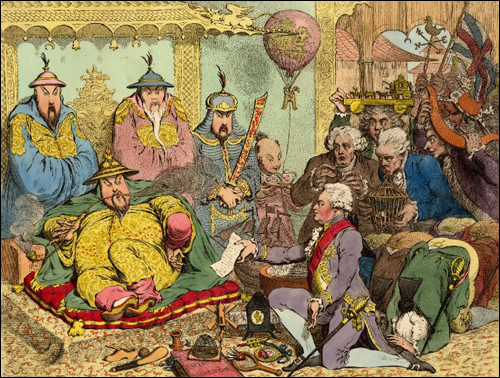
▲3 Ideological war was not new to the British. Edmund Burke had warned about this when the French revolutionary armies sought to replace monarchies with republics:
“We are in a war of a peculiar nature. It is not with an ordinary community ... We are at war with a system which by its essence is inimical to all other governments; and which makes peace or war as peace and war may best contribute to their subversion. It is with an armed doctrine that we are at war.”
The war lasting from 1793 to 1815 was fought largely to check the spread of Jacobin thought. Political liberals, anti-slavers, evangelical revivalists, believers in the family of nations promoted by the author of The Law of Nations, Emerich de Vattel (1714-67), anti-monopolists and free-traders all joined in the fray.
▲4 The British struggle in China was a logical continuation of this ideological war, which persisted even after 1815.
The ground had been laid for the free trade movement in 1776 by the publication of Adam Smith's Wealth of Nations. Ten years later William Pitt laid the practical foundations with a commercial treaty with France abolishing protective duties. But the real change came in 1823 with William Huskisson's Reciprocity of Duties Bill, which relaxed the protectionist Navigation Acts.
▲5 First, The Industrial Revolution led people to believe that humanity could save itself and improve the human condition without relying on the grace of God. The idea that God helps those who help themselves is more evident in the practices of activists such as William Wilberforce (1759–1833), the religious Clapham Sect, and reformers such as Hannah More (1745–1833) and Robert Owen (1771–1858), than in written theory. In the same way, Confucian China had long believed that the development of human society depended on Man, and that divine intervention was not a factor.
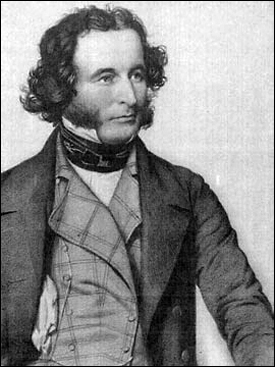
▲6 Second, distinctive methods, both religious and secular, for this were seen to exist. The religious method was spiritual conversion, its popularity exemplified by the multiplication of Protestant Missionary Societies, starting with formation of the Baptist Missionary Society in 1792, and their expansion to China as part of the treaty system. Secular methods included the creation of a national system of education, the way for which had been paved by writers such as John Locke (1623–1704), Robert Owen and Jean-Jacques Rousseau (1712–78). (This belief also lay at the core of Confucian civilization.)
Others saw progress effected by science, which had created such miracles in Britain. Yet others looked to legislation as a way to progress, as the French philosopher Claude Helvetius (1715–71) had advocated; this method included international treaty-making. Finally, thinkers influenced by physiocrats such as Francois Quesnay in France and British moral philosophers such as Adam Smith (1723–90) and Jeremy Bentham (1748–1832) believed that commerce not only was an agent for national development, but also could create a new moral international order. This led to the prediction that a world of peace and plenty could be brought about by the international spread of competitive trade, just as competitive sport was later to be viewed as a way to peace, friendship and reconciliation.
▲7 Third, it was believed that those equipped with the proper knowledge could save nations and civilizations that had fallen by the wayside. Merchants and missionaries both advocated this in China when they moved in after the treaties, and undertook its reform.
▲8 Fourth, although those who accepted the use of violence in China were not directly influenced by the traditional theory of the Just War, the ideological war with revolutionary France had shown that, for good' to prevail, a fight against the “agents of backwardness” might be required. This became clear to the British as a result of the 1802 Peace of Amiens, which had been made by the British to expand commerce but was used by Napoleon for military advantage. Napoleon's action convinced waverers that war might be necessary to effect progress. The British China-merchants saw the Anglo-Chinese wars in this light.
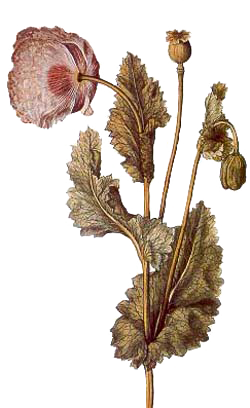
▲9 Where the British merchants and their government supporters fell down is that they lacked a deep knowledge of China and were ignorant about the Confucian Renaissance. Some of the fruits of this had been passed on by the Jesuits in the seventeenth century through their Lettres Edifiantes. But with its demise before the French Revolution, Britain relied primarily on the misleading opinions of merchants.
▲10 The resultant misinformation provided a paradox in regard to using legislation to progress. For while Britain insisted on opening China by way of treaty, she refused to accept that China had the right to legislate against opium trafficking and usage in its own territory. The British government ignored the legal measures China took in the form of edicts to stop the trade and prevent usage. This paradox was compounded by the European demand to use their own courts to try citizens accused of crimes in China, ignoring Chinese law.
▲11 Although Chinese legislative action to control opium began in 1729, the measures taken to prevent imports began in earnest in 1796 as a result of the increase in European drug trafficking. Opium had been imported into China long before, introduced by Arabs during the T'ang Dynasty (AD 618–907), when it appears the drug was used for medicinal purposes, not as a narcotic. This changed in the twelfth century when, following the creation of Islamic sultanates in Southeast Asia, Arabs established a trade base at Canton. But opium usage was not a serious problem. The preferred social intoxicant, as in Europe, was wine, which was used to accompany courtly and other dining rituals, and stimulated poets.
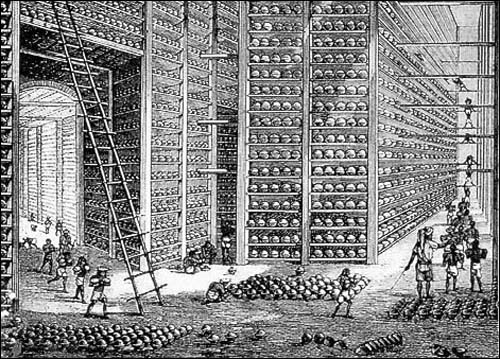
The threat of a drug culture developing in the empire emerged after the Portuguese had settled at Macao in 1557. There were two reasons. The Portuguese imported both tobacco and opium, and supplied a cheap instrument for addicts, the pipe. The consumption of opium, which could be mixed with tobacco for easy use, now increased. Tobacco was banned in 1641 to protect the population, but imports continued and Chinese farmers in the western regions soon began growing tobacco as a cash crop, as happened later with opium.
▲12 Legal action was first taken against opium as opium smoking dens multiplied, addiction spread, markets grew and foreign imports increased. As has been noted, the first edict banning opium imports to protect minors was issued by the Manchu Emperor Yung Cheng in 1729, at which time some 200 chests were being imported from India annually. Despite the law, imports increased. Two further edicts banning the drug were issued in 1796 and 1800. Imports continued, but opium merchants were henceforth classified as smugglers.
▲13 The British East India Company gave over the opium trade toprivate merchants who paid little attention to the rule of law in China. After the reorganization of the East India Company in 1833 and the loss of its charter to trade with China in 1834, imports escalated together with China's drug problem, as part of the move to incorporate China into a free-trade zone. Opium was merely one of the commodities; but it took the limelight. Profits were large. Opium, packed in little chests, was easy to handle; and small ships could be used, requiring a relatively small capital outlay. ▲14 By the 1830s, some 30,000 chests were entering China each year, carried mostly by private British merchants. ▲15 The consequent dramatic increase in drug addiction led the Emperor Tao Kuang (r.1821-51) and his officials, Confucian and humanist by training, to take action. It was this step that laid the foundation for the wars.
Although the Chinese government was acting on principles similar to those proposed by Helvetius in Europe, using legislation in the form of imperial edicts to eradicate problems and construct a more perfect society, there was a major difference between the Chinese approach and the British. The laws on opium in China stemmed from empirical research conducted by officials into the effect of the drug on individuals and society. A renaissance in Confucian thought had taken place in the years following the fall of the Ming Dynasty in 1644. Academic investigations into the cause of the fall of the last native Chinese dynasty gave rise to an empirical school of research whose followers, not unlike the ancient Greeks, differentiated between "opinion" and knowledge based on research verifiable by others. The “flood of new ideas”, as the Chinese Renaissance was termed, produced the method of empirical research, which in turn produced a new breed of scholar-officials, and the new empirical approaches guided Confucian administration. One concerned scholar, for example, Tai Chen (1724-77), had applied the empirical research method to social analysis and reform, starting a new school of enquiry.
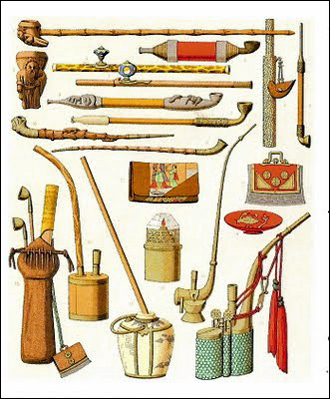
The new outlook was noted in positive terms by Jesuit missionaries, who impressed Europeans such as Voltaire and Goldsmith with the idea of an enlightened Confucian China ruled by scholarly monarchs and public officials.
Information about the existence of an opium problem affecting China was presented to the Emperor on June 2nd, 1838, by a civil servant, Huang Chueh-tzu. His memorandum advocated drastic laws. The document was sent about the empire for comment and advice from other officials. ▲16 On July 10th, 1838, Lin Tse-hsu (1785-1850), governor- general of the Liang Hu vice-regency (Hunan and Hupeh) north of Canton, added his own thoughts to the memorandum, making quite clear the threatening effects of the drug, noting:
“If we continue to pamper it, a few decades from now we shall not only be without soldiers to resist the enemy, but also in want of silver to provide an army.”
Others branded opium as a deadly poison. In a massive clean-up operation, Lin had already destroyed 5,500 opium pipes and 12,000 ounces of the drug itself. He now proposed drastic action at a national level, recommending the destruction of the addicts' equipment; a time limit for addicts to reform; the banning of opium imports; and heavy punishments for traders and dealers.
These suggestions were based on evidence that showed that opium was addictive. Addicts did not seem to be able to help themselves. It was clear that their lifestyle and that of their families consequently suffered. Drug use thus threatened to undermine not only family morals, but also the social and moral foundations of the empire. Further, Chinese officials identified British merchants as the main source of the problem, claiming these imported most of the opium used in China.
▲17 Further researches by Confucian officials identified other problems. First, that drug addiction was affecting the workforce and undermining production, thus opening the way for foreign imports to increase at the expense of China's domestic industries. Officials therefore saw the presence of narcotics as a threat to the industries they were charged with protecting. ▲18 The demands made by the British foreign secretary Lord Palmerston to open China to trade were later supported by the United States which made its own trade treaty in 1844, supporting free trade and an "open door" into China though taking a strong line against the opium drug trade. France followed suit. Chinese officials consequently saw they were facing a consortium of powers pressing for free trade, with opium slipping in under this pretext, threatening domestic productive capacity.
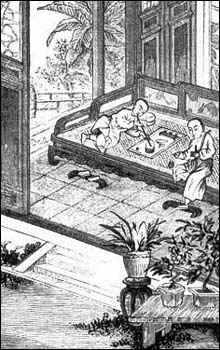
▲19 Second, the importation of opium was seen to be causing a crisis in payments that affected the currency. The root of this problem was the insistence of British and other opium traders on being paid in silver. China, at the time, had a bi-metalism system: silver and copper were both used for exchange purposes. The latter was the general coinage used among the populace, but taxes and such like had to be paid in silver. There was usually a fixed rate of exchange between the two coinages, though this was upset when opium poured in and silver flowed out, causing a scarcity of the latter. This affected the rate of exchange, creating an inflationary effect. Goods paid for in copper rose in price, while taxes, paid for in silver, rose correspondingly. Those who handled only the copper currency suffered. The increase in hardship and poverty that resulted from this situation was blamed on Britain and its "foreign mud", as opium was called.
This problem was first identified by a prominent scholar official serving at Canton, Juan Yuan, in the mid-1830s. In response he advocated a system of licensing opium in order to control imports, raise revenue and control the silver outflow.
Neither the Chinese nor the British understood what they were truly up against. The Chinese authorities were unaware that just six years earlier, in 1832, a British parliamentary committee of enquiry into the Indian revenue had approved India's opium trade. Opium exports helped balance India's budget, while prospering Bengali and other farmers. Meanwhile Palmerston and the free traders in London viewed the Chinese edicts against opium as cunning attempts to keep out British opium so they could sell their own crop, and prosper their own farmers, though this was in fact imaginative nonsense: Chinese opium was regarded as poor quality, and fetched a fraction of the price of the Indian variety. In any case, Britain refused to recognise China's anti-opium laws as legally binding if China could not itself enforce them.
The British held two other misconceptions, both gained on the spot in Canton. The first stemmed from the fact that, although opium was banned under Chinese law, it was handled by officially appointed Hong (foreign trade) merchants when it was landed from the foreign ships. This, to the British, made a mockery of the law, and seemed to corroborate reports that official corruption was rife throughout China and confirm the opinion that the country was in decay. In fact, the Emperor had appointed an incorruptible official in Lin Tse-hsu.
The second misguided impression originated from Juan Yuan, who had publicly advocated compromise in the first half of the decade, suggesting that China might soon legalise the opium traffic. This impression seemed to be strengthened when Yuan was called to Beijing in 1835 to serve in the Grand Secretariat. Unfortunately for the merchants, though, Yuan retired in 1838.
▲20 Lin Tse-hsu arrived at Canton on March 10th, 1839, and, to the surprise of the foreign merchants, took immediate, drastic action. On March 18th, he informed the Hong that the opium trade was over, advising the foreign merchants that if they wished to trade at Canton at all, they had to sign a bond agreeing not to deal in opium. They were also ordered to hand over their stock, followed by a demand to hand over a prominent British opium trader Lancelot Dent. The Hong merchants fell into line. The British protested. Dent fled.
▲21 The British government became involved. Following the abolition of the East India Company's Charter for trade in China, a crown official, Captain Charles Elliot, had been appointed to look after British interests in Canton. This increased the possibilities of conflict, as Elliot, representing the Crown, could not be treated the same as an East India Company employee. Offending him would be a slight to Britain.
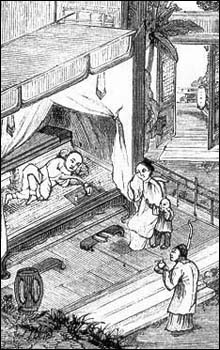
▲22 But on March 24th, 1839, Lin ordered Elliot to hand over all the British opium at Canton. With the port blockaded and Chinese staff gone, Elliot conceded. He ordered all the merchants to pass their opium over to him, and on March 28th promised to hand over 20,282 chests for destruction. He blundered: the British did not in fact have that much opium in Canton. He therefore had to import an additional 523 chests to make up the number he had submitted to Lin. Then, to the surprise of those foreigners who viewed Chinese officials as corrupt, Lin publicly destroyed the opium.
▲23 In an attempt to consolidate matters and stamp out the problem at the source, Lin wrote to Queen Victoria at about the same time, advising her that trading in drugs was against natural law, and that dealers who caused injury to others for personal gain, were immoral. He then described the effects of the drug. However, there is no record of Lin's letter, which was made public in China, ever reaching Victoria or her officials.
▲24 A new phase in the crisis began with the murder of a Chinese villager by British and foreign sailors on July 7th, 1839. Lin demanded the murderers be handed over. Elliot refused, preferring to deal with the culprits under British law. As a result of this refusal, Lin expelled the British from Canton on August 26th. They retreated to the sparsely populated Hong Kong island.
The next day, Lin wrote a second letter to Queen Victoria. This time the favourably disposed Captain Warner of the ship Thomas Coutts promised to deliver the letter personally. However, when Warner arrived in London, Foreign Office officials refused it, with the excuse that it did not come through normal diplomatic channels, therefore could not be accepted. It never reached the Queen, and neither she nor Palmerston seem to have been officially aware of its existence. However, the following year, it was published in full in The Times on June 11th, 1840. In it Lin explained to the Queen the Emperor's concern about the evil of opium, and insisted that the source of the problem was the trade conducted by the British:
“There are barbarian ships that strive to come here for trade for the purpose of making a great profit. The wealth of China is used to profit the barbarians. That is to say, the great profit made by barbarians is all taken from the rightful share of China. By what right do they then in return use the poisonous drug to injure the Chinese people? Even though the barbarians may not necessarily intend to do us harm, yet in coveting profit to an extreme, they have no regard for injuring others. Let us ask, where is your conscience? I have heard that the smoking of opium is very strictly forbidden by your country; that is because the harm caused by opium is clearly understood. Since it is not permitted to do harm to your own country, then even less should you let it be passed on to the harm of other countries - how much less to China!”
He then outlined the regulations and punishments that were to be imposed
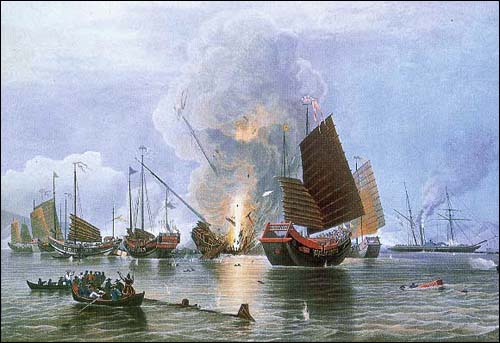
▲25 China found itself up against the fruits of the British Industrial Revolution, pitting junks against steam warships. A Chinese poem provided a full description:
“Their length is more than three hundred feet, Their height and breadth more than thirty feet, They use iron guns of a great size and strength, They are painted all over of a black colour, Having the look of being covered in iron garments. The fire ship has wheels on both sides Which are made to revolve by fire made of coal. She runs with the swiftness of a fleet horse.”
In the meantime, the British merchants expelled from China found a safe haven in Hong Kong, though the island possessed nothing to eat or drink. When they went to get supplies at Kowloon on September 4th, 1839, they were refused. The British opened fire. Skirmishes followed. Then on November 26th, Lin banned all British ships from Canton; on December 13th, all British trade was banned completely. Palmerston responded by sending a punitive expedition, including modern steam warships and thousands of marines, from Singapore to blockade Canton and take action along the southern Chinese coast. He justified this by calling for the opening of China to free trade and played down the drug trade, the root of what the Chinese saw as the trouble.
The First Opium War was officially ended by the Treaty of Nanking in 1842, and ▲26 It revealed two things. The overwhelming military success of the British showed Confucian China was in need of reform and scientific and technical development. This reinforced the British belief that China should be opened for its own good. ▲27 In this view they received support from the US commissioner to China, Caleb Cushing, acting for President Tyler, who in 1844 enacted a treaty opening the door to American merchants while taking a strong anti-opium line. ▲28 Ten years later the Americans provided a model for opening Asian trade in a drug-free manner by taking independent action, sending Commodore Matthew Perry with three steam warships to force Japan to open. Europe had to follow the American lead.
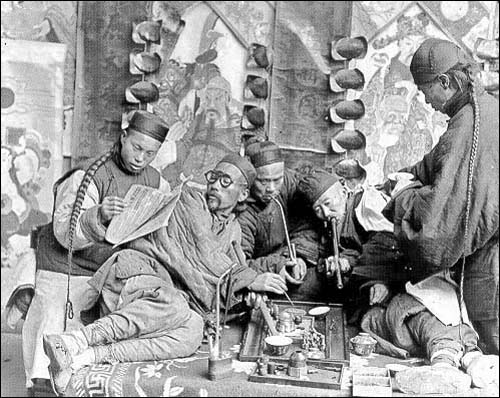
▲29 China's opium problem was largely ignored in British government circles, although opium usage and its perils had been in the news for some time. In 1821 the writer Thomas De Quincey, for example, had revealed how easy it was to get the drug in London and to enter paradise as a result. And during the war, articles in the press recorded that not only was opium being grown and processed in Britain for medical uses, there was also an addiction problem at home. The Times of July 17th, 1840, recorded that 'there is not another county where narcotics are as much used ... as Lincoln”, and that all opium users are also “beer and gin drinkers while teetotallers abstain”.
Towards the end of the war Victoria wrote about China, but only in the context of her baby Victoria, born in 1840. She confided to the King of Belgium on April 13th, 1841:
“Albert is so amused at my having got the Island of Hong Kong, we think Victoria ought to be called Princess of Hong Kong in addition to Princess Royal.”
▲30 But neither the war in China, nor the trade in opium went unopposed. The prominent leader of the evangelical group in the Church of England and life-long opponent of the opium trade, Lord Ashley, later Earl of Shaftesbury (1801-85), after welcoming the news of peace in his journal on November 22nd, 1842, added:
“But I cannot rejoice - it may be unpatriotic, it may be un-British - in our successes. We have triumphed in one of the most lawless, unnecessary, and unfair struggles in the records of history; it was a war on which good men could not invoke the favour of Heaven, and Christians have shed more heathen blood in two years than the Heathen have shed of Christian blood in two centuries.”
In the following year, on April 4th, Ashley moved in the Commons:
“That it is the opinion of this House that the continuance of the trade in opium, and the monopoly of its growth in the territories of British India, are destructive of all relations of amity between England and China, injurious to the manufacturing interests of the country by the very serious diminution of legitimate commerce, and utterly inconsistent with the honour and duties of a Christian kingdom; and that steps be taken as soon as possible, with due regard to the rights of governments and individuals, to abolish the evil.”
The next day The Times used seven columns, plus a leading article, to disseminate Ashley's speech. British and American evangelical Protestants were not long in starting an anti-opium crusades at home and in the provinces of China that had been opened by the treaties.
▲31 In 1856, Palmerston, by now prime minister, launched the Second Opium War following a Chinese seizure of a British ship. This led to hostilities along China's coastline and up its rivers, extending to north China where Beijing was occupied in October 1860.
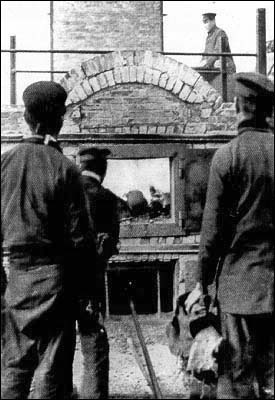
The result was a further expansion of British territory and the further opening of China to foreign trade, including opium. This was followed in 1876 by the Chefoo Convention which opened more ports, arranged for inland trade with British Burma and local taxes on commerce.
▲32 Under the administration of the now-dominant faction of compromising officials, China continued to accept Indian opium until 1902 when the Empress Dowager Tzu-hsi (1835-1908) laid the foundations for its gradual phasing out. In 1911, an international conference on opium at The Hague left drug trafficking to be dealt with at the international level in place of bilateral treaties between interested parties.
Confucian scholar-officials continued to contribute at the end, as they had at the beginning of the trade. The eminent statesman Li Hung-chang (1823-1901) wrote pointedly about it in 1893, claiming, at one with the Christian evangelists, that
“Because of this money-grasping, trade-compelling feature of England's dealing with my country, millions of wretched people of China have been made miserable ... paupers, vagrants and the lowest of criminals.”
but also advising that:
“Christianity has suffered a much slower growth among the Chinese because of this one curse of opium.”
In keeping with the Confucian literary tradition, he penned his thoughts in poetry, condemning Britain for coming:
“Not as a friend ...But with a cry for blood and gold and more.”
while warning his countrymen in his Ode to the Poppy:
“Who would think to look upon you, Nodding sweetly in the fields, That the scented heart within you, Our soul's vilest passion yields.”
Although the hardline Lin Tse-hsu had in 1840 been dismissed and exiled to a remote northern province, his stance was vindicated in 1929. In that year June 3rd, the day he had destroyed the confiscated opium in Canton ninety years earlier, was set down as National Opium Prohibition Day.
▲33 This Chinese interest, and the treatment of the opium factor in China's history in the late nineteenth and early twentieth centuries, has had a balancing effect. It ensures that Palmerston's record of events - which discounts Chinese evidence, and downplays the opium drug trade that China viewed as a basic cause of war - has to be re-examined in the context of Chinese official sources. Valuing Western sources above others has warped the historiography of China. For example, there is no reason to claim, as some writers do, that China was carved up into European spheres in the nineteenth century, making it a “semi-colony”. The point of the free-trade movement was to preserve China's territorial integrity by opening it to trade, for the treaty ports were open to all. That is why China itself opened a lot of ports at the close of the century.
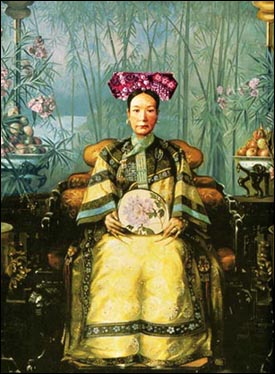
▲34 Victoria's last prime minister, Lord Salisbury, realised this in the 1890s, laying at the same time foundations for Anglo-Chinese friendship that would preserve an open door to British trade. He helped ensure that Japan did not get exclusive rights and a sphere of interest in 1895, after its victory over China. He also saw that, despite the open-door policy, power lay in China's provinces, not in Beijing. The provincial officials guarded the integrity of their own territories and used their taxing authority to protect domestic trade and production. And most important as far as future friendship was concerned, was Salisbury's response when Sun Yat-sen was kidnapped by Manchu agents in London in 1896. He took swift and firm action, thereby saving the life of the future president of the Chinese Republic.
▲35 When the Republicans took control in 1912, thanks to the open-door policy they inherited the empire intact, with the framework of a modern state. Prominent amongst the centralising institutes was Beijing University, established in 1898. There was a major question: would China's new educators teach the ways endorsed both by Chinese Renaissance scholars and European Age of Enlightenment, or would they teach doctrine, some of which had links with science?
▲36 In 2001, the centenary of the death of Victoria, the hopes of the Queen and Palmerston for China were finally realised when it joined the World Trade Organization. But one thing was out of order. Its government was one that crushes freedoms and imprisons democrats. This triumph for the principle of free trade was therefore tainted by the continued defeat of Enlightenment values in China, whether those of Confucius or of Helvetius.